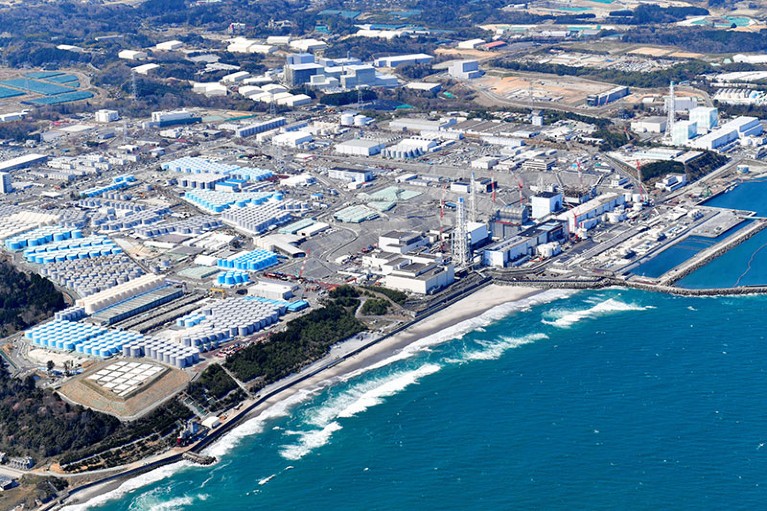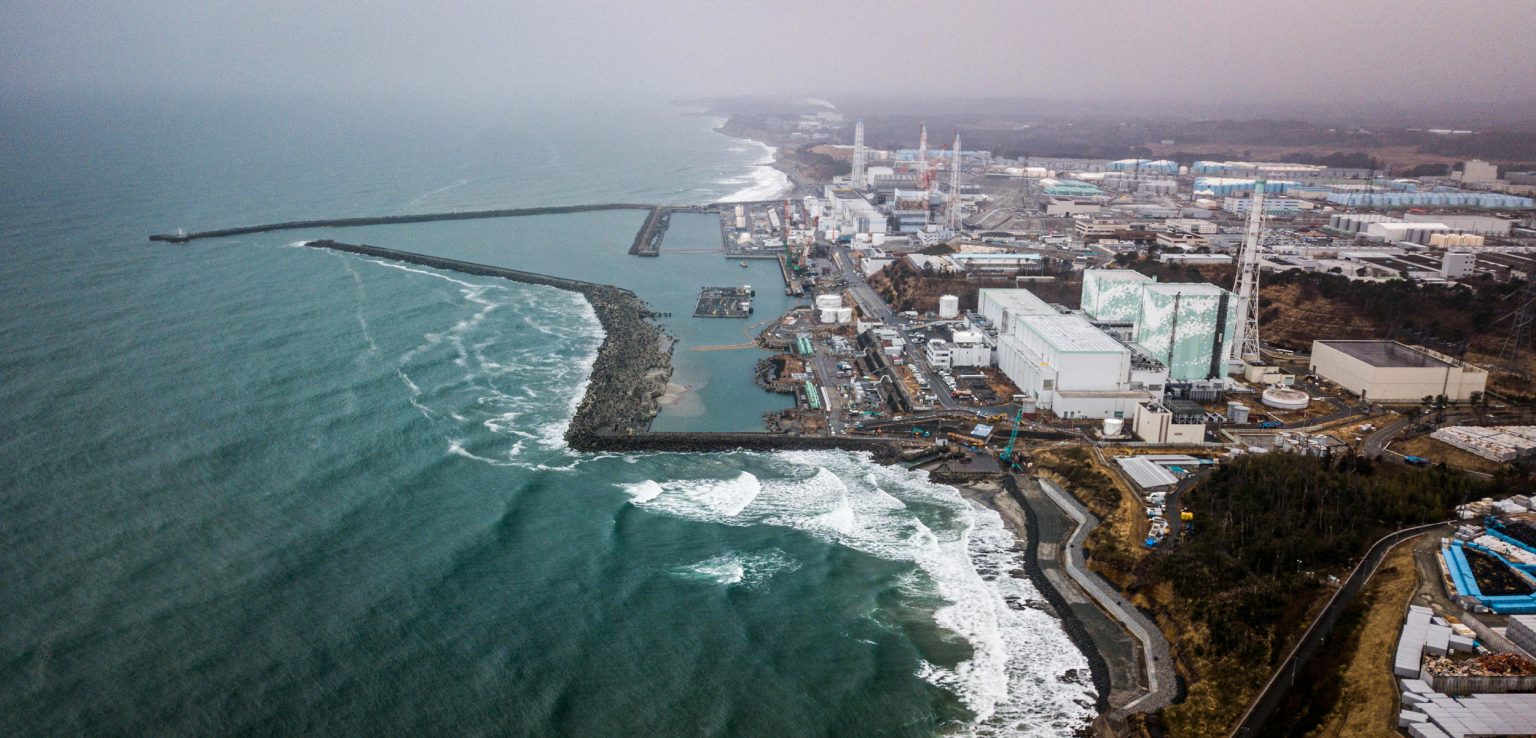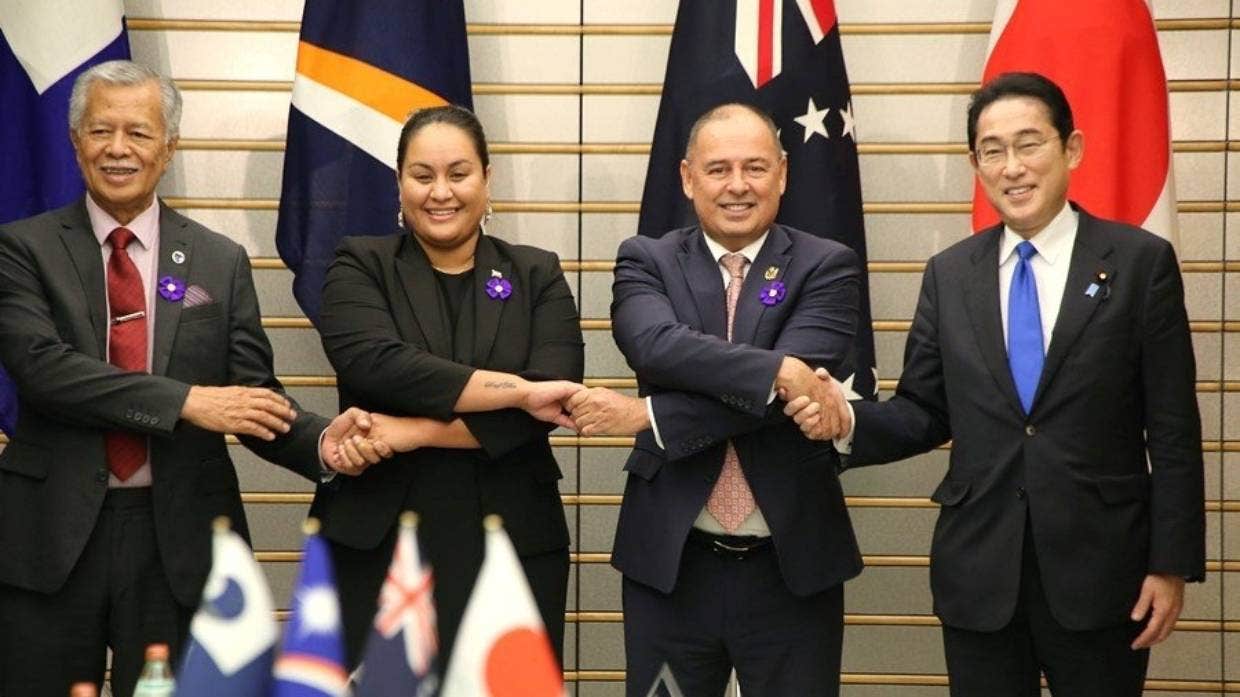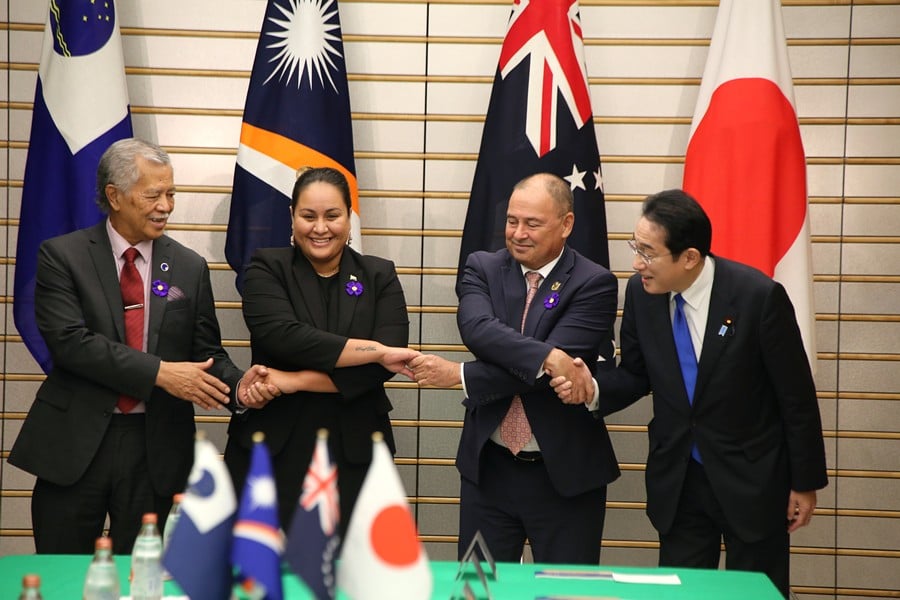If Japan’s plan to release nuke wastewater into the Pacific Ocean is not handled properly, its impact will be devastating to the Pacific region, says WCPFC Executive Director
The newly appointed executive director of the Western and Central Pacific Fisheries Commission (WCPFC) tasked to take on the cause of protecting the world’s tuna stocks has raised alarm by Japan’s plan to release nuke wastewater in the Pacific Ocean.
Japan’s plan to release over a million tons of radioactively contaminated cooling water from its Fukushima Daiichi Nuclear Power Plant into the Pacific Ocean is expected to begin in early March or April 2023.
The release of nuke waste water is expected to harm marine life especially the Pacific billion-dollar industry, Tuna.
Rhea Moss-Christian 48, told a press conference with journalists at the WCPFC19 in Da Nang, she wished the Japanese government will delay the release of the nuclear wastewater because of the risks involved.
“Yeah, Fukushima is a concern. Also, for the Marshall Islands. This is one that we dealt with when I was with the nuclear commission.
“I wish that the Japanese government would take some more time before its release. There are a number of outstanding questions that have yet to be fully answered. They have focused a lot on one particular radionuclide. And not very much on others, that are also present in the wastewater.
“We have a lot of experience in the Marshall Islands with lingering radioactive waste. And we don’t want to find ourselves in another situation, not just in the Marshall Islands, but in general in the region, where we agree to something without knowing what could potentially happen in the future. But not only that, what are the contingency plans? What are the compensation mechanisms? How do these, how does the wastewater in the in the toxins behave across the ocean?” Moss-Christian said in response to PACNEWS question.
She said if the issue is not handled properly its impact will be devastated to the Pacific region, especially those who depend on the ocean for their sustenance.
“It’s a real concern.
“And I just wish they would take a bit more time to think more carefully about this. If there’s you know, find a way to delay. I understand that there are some urgencies because of the logistics and the storage of this wastewater.
“But this is a massive release and a big, big potential disaster if it’s not handled properly. But Japan is a really important partner in this region. And consultation is not new for Japan and in the region, island countries and so if we could just continue on that and not make any hasty decisions. I think that would really go a long way, not just for the partnership, but for also protecting our fisheries,” said the new WCPFC executive director, Moss – Christian.
She said she stepped from the Marshall Islands National Nuclear commission last year to focus her attention in vying for the new role as head of WCPFC.
“I stepped down from the National Nuclear commission in December of last year in the Marshall Islands, because I wanted to be sure that no one would question my commitment.
“Either way, I didn’t think it was fair to the nuclear commission to be there. But trying to move, you know, trying to pivot my career at the same time,” said Moss – Christian said.
At the 51st Pacific Islands Forum Leaders Meeting held in July in Fiji, leaders reiterated their strong concerns about the significance of the potential threat of nuclear contamination to the health and security of the Blue Pacific, its people and prospects, and reaffirmed the importance of ensuring international consultation, international law, and independent and verifiable scientific assessments as per the PALM9 Declaration.
The PALM9 declaration undertaking for Japan to provide Forum members with explanations based on scientific evidence, in a highly transparent and timely manner.
The Forum said these are even more important considering the transboundary and transgenerational nature of nuclear waste discharge of this magnitude.
While the plan is supported by the IAEA and the Nuclear Regulatory Authority of Japan, the Forum’s panel of independent experts who are independently assessing the science reiterated their serious concerns that more data and information are needed to ascertain the safety of the water for disposal.
“The Pacific remains hopeful that no discharge will happen until all issues and concerns of the Pacific are addressed, through solutions that are based on best applicable science, and are consistent with international legal and moral obligations,” a recent statement from the Forum said.
The ocean produces more than 50 percent of the planet’s oxygen, is the main source of sustenance for more than a billion people, and provides work through its industries for some 40 million employees, according to the United Nations.
This story was written by Pita Ligaiula, originally published at PACNEWS on 05 December 2022.




